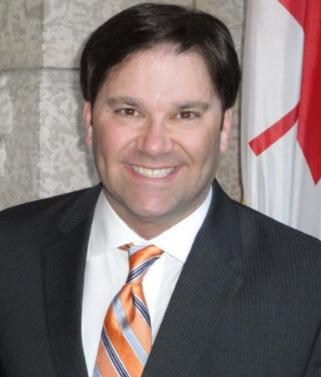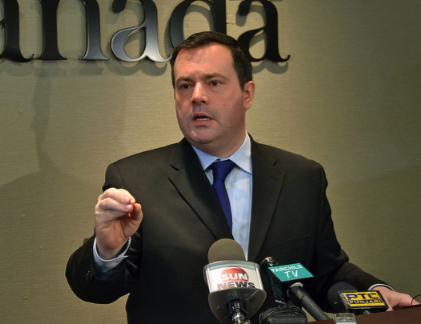
NDP immigration critic Don Davies says the government's latest reform bill is a step backward.

A group of gay asylum seekers in Paris recently profiled by Xtra. Credit: (Barbara Laborde)
Bill C-31 rolls in provisions of the current Bill C-4, which seeks to crack down on human smuggling by allowing the public safety minister to declare certain mass arrivals — like boats of Tamil refugee claimants — as “unusual” events, allowing for those claimants to be held in detention for up to a year.
While Kenney says the provisions have been changed so minors under 16 years old won’t be detained, Peter Showler, director of the University of Ottawa’s refugee forum at the Human Rights Research and Education Centre, raises a red flag, saying the bill does not contain a provision that states they shall not detain them.
“The government still has the discretion to detain children, but it’s discretionary and not automatic the way it is for everybody else in a designated group,” Showler says.
He says the detention provisions are a violation of Section 9 of the Charter, as the detentions will by definition be arbitrary and the legislation is vague when it comes to giving the minister authority to designate groups. Showler adds that Section 10 is violated because claimants have no right to review detentions to ensure that they’re lawful.
This is further complicated by the fact that in the Charkaoui decision, the Supreme Court of Canada said three months was too long for a person to be detained without review on a security certificate.
“For incredibly dangerous people, three months is too long, but for non-criminals, for irregular group arrivals, it’s going to be a year,” Showler says. “It’s so far off any legal map in terms of the Charter analysis that it’s absurd. It’s difficult to comprehend why the minister would do this.”
There are also no provisions to give claimants a mechanism to apply for release once a positive determination of their claim has been made, which would allow the Canada Border Services Agency to continue holding them for the duration of the year.
Showler is also concerned about the limited number of spaces in chronically full federal immigration detention facilities across the country. This means a significant group arrival would mean placing detained claimants in a provincial medium-security facility.
“We’re talking about moving people, some of whom are traumatized, don’t speak English or French, are a different colour than the criminals, and they’re being moved into mixed criminal populations with staff and procedures that are designed to deal with criminals, not non-criminals,” Showler says. “It is horrendous.”


 Why you can trust Xtra
Why you can trust Xtra


